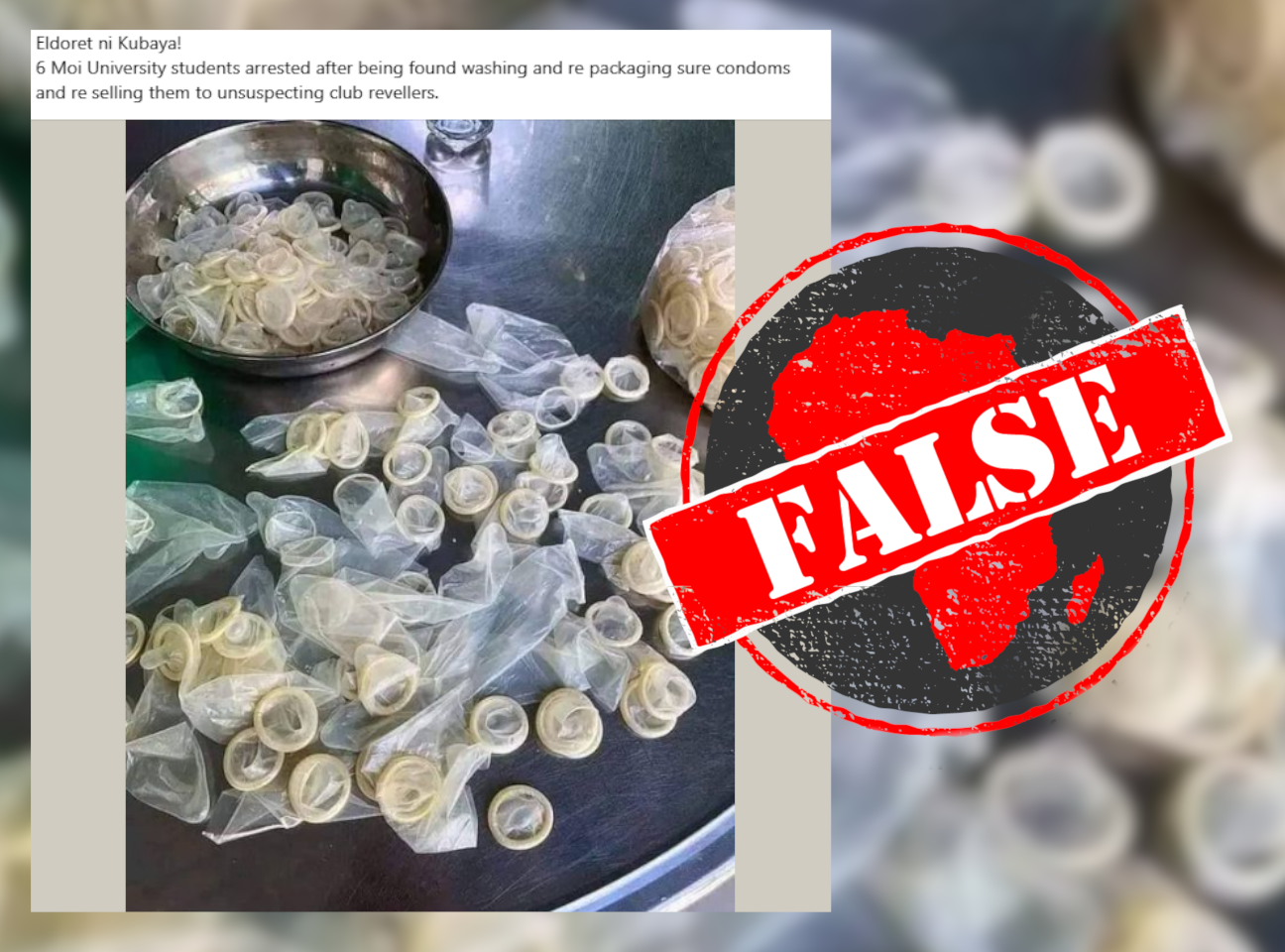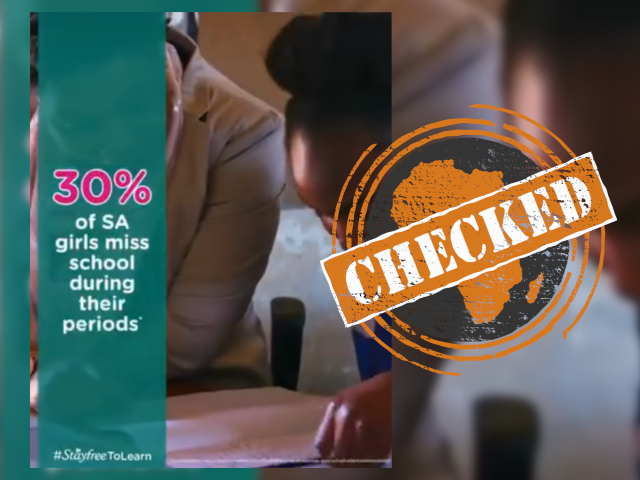A photo doing the rounds on Facebook in Kenya shows dozens of unwrapped condoms that appear to have been used.
It was posted on 8 and 9 March 2023 with a caption that suggested used condoms were being repackaged and sold as new by university students in Eldoret.
Eldoret is a town in Uasin Gishu county, north-west of Kenya’s capital Nairobi.
“Eldoret ni Kubaya! 6 Moi University students arrested after being found washing and re packaging sure condoms and reselling them to unsuspecting club revellers,” the caption in one post reads.
The Kiswahili in the first sentence translates as “Eldoret is dangerous”.
Moi University is a Kenyan university located about 34 kilometres outside the town. “Sure” is a condom brand manufactured in Thailand.
The photo has been posted multiple times, here, here, here and here, and has attracted hundreds of likes and comments.
Other users have posted the photo with a link that leads to a YouTube video.
But does it show used condoms seized from university students at Moi University? We checked.

Photo from Vietnam
A reverse image search of the photo reveals it was first published in 2020.
According to news agency Reuters, police in Vietnam confiscated an estimated 345,000 used condoms at a warehouse in the southern Binh Duong province in September 2020. The condoms had been cleaned and resold as new.
Reuters cited the TV station Vietnam Television and further reported that a suspect was arrested and detained. Other credible news websites also reported on the story.
All the photos posted on social media in Kenya have a “Binh Duong’s market management” watermark in the bottom left-hand corner, further confirming it is from this older Vietnamese incident.
Had local students really been arrested in a similar incident it would have been widely reported in Kenya. But when we searched for the story on credible media outlets, we found no mentions of it.
Some of the Facebook posts link to a video that has nothing to do with the claim. The photo has been used as clickbait to inflate the number of views of the unrelated video on YouTube.
The claim is false.
Republish our content for free
For publishers: what to do if your post is rated false
A fact-checker has rated your Facebook or Instagram post as “false”, “altered”, “partly false” or “missing context”. This could have serious consequences. What do you do?
Click on our guide for the steps you should follow.
Publishers guideAfrica Check teams up with Facebook
Africa Check is a partner in Meta's third-party fact-checking programme to help stop the spread of false information on social media.
The content we rate as “false” will be downgraded on Facebook and Instagram. This means fewer people will see it.
You can also help identify false information on Facebook. This guide explains how.



Add new comment